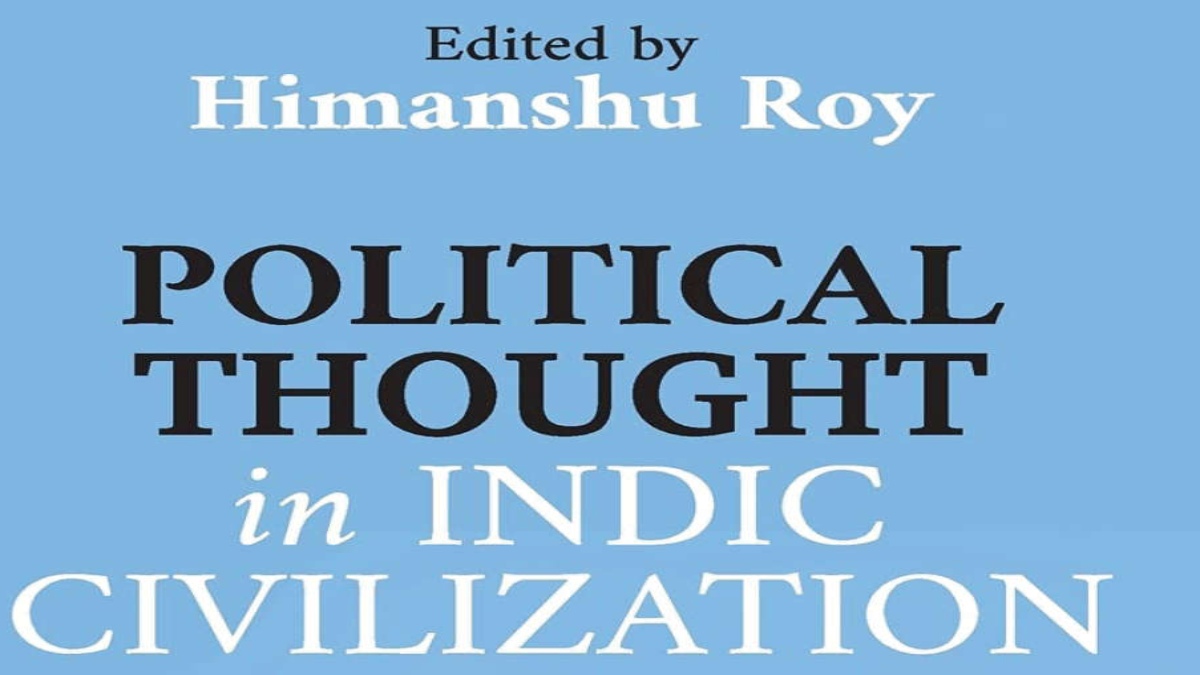


‘India as the manufacturing and trading hub of the world was always linked to the world. The diverse knowledge traditions of the world were integral parts of Indic society which was receptive to the diverse new ideas required to cater to the diverse needs of different parts of the world”.

The arrival of the Company in the 17th century and the seizure of power in the 18th century was part of the desire to control power and destroy the very basic pillar of society, that is, Indic knowledge system. The intent to rule over this wealth – the labour and the resources – lead to the distortion of Indic history under the planned design. The foundation of the Asiatic Society in 1784 at Calcutta was the beginning of the systematic destruction of Indic history famed for its wealth and wisdom.
Himanshu Roy’s edited book Political Thought in Indic Civilization (published by Sage Publishing) revolves around, how the colonial masters had gathered the knowledge about the Indic system and misguided the information and systematic destruction of the Indian knowledge system as a tool to divide. Indian Pandits and Maulvis were engaged to interpret the Indian texts but were not part of the final decision-making process. In this process Asiatic Society (1784) had played a pivotal role. 38 members were the founder of this society but none of them was Indians, neither it was open for the Indians for the next 40 years.
Indic thought has been in constant flux reflecting the ideas of the times. Roy’s edited book covers two broad themes, one, how the state should better its function in order to strengthen itself, particularly in the structurally divisive society in the post-Rig vedic eras. Rarely, there is a reflection or an argument for its abolition. What we do find is a reflection of an imaginary ideal state or a society, a Ram Rajya or a social desire to return to Satyug-Dwapar-Treta yug which are equated with an ideal society with social bliss.
Political Thought in Indic Civilization retrieves, resurrects, and analyses the earliest theories of Indic political philosophies. The book primarily focuses on Indic civilization’s political thought, emphasising key issues such as rashtra (state), kingship, jurisprudence, and justice. The study shows how ideas, ideologies, frameworks, reference points, and other significant tools of scholarly discussions are so much under the influence of Western thought, failing to appreciate the Indian realities. The book highlights the impact of colonial rule on the ‘construction of knowledge’ from a Western (colonial) perspective and how it ignored the importance of Indian political thought of the pre-colonial period.
Roy’s book has 11 chapters with Preface, Introduction, and Conclusion. In the Balaji Ranganathan chapter, the Trajectory of Rashtra points out the historical journey of rashtra and colonial misinterpretation. The notion of the rashtra does not emanate just from the colonial period but it evolves to the latter stage through a complex interaction of history, materiality, and idea of personal self.
Roy’s chapter on Indic Islam points out the dichotomy of Indian Muslims, which divides them into invaders and converts. The majority of converted Indian Muslims (approximately 95%) were Dalits or OBC who continued with their hereditary caste rules.
The writer is Assistant Professor, University of Delhi.
In the Balaji Ranganathan chapter, the Trajectory of Rashtra points out the historical journey of rashtra and colonial misinterpretation. The notion of the rashtra does not emanate just from the colonial period but it evolves to the latter stage through a complex interaction of history, materiality, and idea of personal self.